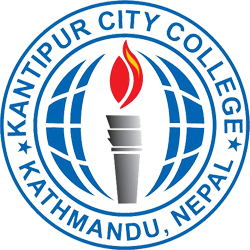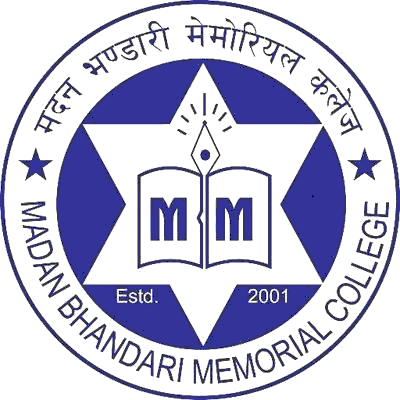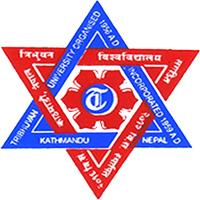Overview
Transforming Journalism Education in Nepal: The College of Journalism and Mass Communication (CJMC)
The College of Journalism and Mass Communication (CJMC) stands as a pioneering institution in media education within Nepal. Since its establishment in 2001, CJMC has been dedicated to producing professional journalists and development communication agents who excel in their fields and assume positions of leadership and influence.
Exceptional Academic Achievement and Professionalism:
CJMC's success is measured by the academic achievements of its students and the exceptional level of professionalism they exhibit in their respective careers. Over time, the college has consistently maintained outstanding standards, instilling professionalism in media activities and providing students with an integrated and practical understanding of journalism.
Sole Focus on Media Education:
CJMC takes pride in being the sole college in Nepal dedicated exclusively to media education. Currently, around 400 of CJMC's alumni and post-graduates are working as media communication experts throughout the country, testifying to the quality education imparted by the institution.
Objectives:
- Establishing Communication University of Nepal (CUNepal): CJMC aims to set a new benchmark in journalism quality by establishing the Communication University of Nepal (CUNepal). This transition to a university allows for curriculum restructuring and the introduction of new, relevant courses in journalism and mass communication.
- Reforming Teaching Practices: CJMC seeks to end traditional teaching approaches in journalism and re-evaluate its practices, embracing innovative and effective methods.
- Center for Excellence: CJMC strives to become a center for excellence in journalism across Nepal, fostering a culture of journalistic integrity and professionalism.
- Promoting Social Change through Media: CJMC is committed to providing full scholarships to underprivileged students from remote areas interested in journalism, thereby contributing to social change.
- Integrated and Practical Understanding: CJMC aims to provide students with an in-depth, integrated, and practical understanding of journalism, ensuring they are well-prepared for the challenges of the profession.
- Embracing New Media Technologies: CJMC places importance on educating journalists and students about the functional and operational capabilities of emerging media technologies, equipping them with the necessary skills for the digital age.
Vision:
The ultimate vision of CJMC is to transform itself into the Communication University of Nepal (CU Nepal). The registration of CU Nepal with the Ministry of Education and Sports has already been completed. By attaining university status, CJMC will have the freedom to overhaul its curriculum, move away from outdated teaching methods, and forge new foundations for journalism education in Nepal.
Fulfilling Pre-requisites for CU Nepal:
Once the umbrella act mandates the establishment of private universities, the primary pre-requisite for CU Nepal will be fulfilled. As a result, CU Nepal will be able to thrive under CJMC's rich heritage, enabling changes to the curriculum and the introduction of various faculties and disciplines in journalism and mass communication. The university status will also facilitate collaborations with prestigious international universities, inviting foreign professors to train and educate students, thereby enriching their understanding of journalism.
Expanding Opportunities and Impact:
By becoming a university, CU Nepal will provide easier access to partnerships with renowned universities worldwide. This will open up avenues for international exposure, enabling students to gain experience and conduct research abroad. With enhanced infrastructure and supported by CJMC's legacy, CU Nepal aims to revolutionize journalism education and become a catalyst for change in Nepal's media landscape. Through upholding democratic values and promoting a free press, the Communication University of Nepal is committed to shaping a new era of journalism in the country.
CJMC Highlights:
CJMC has consistently been at the forefront of media education in Nepal, introducing groundbreaking programs and achieving remarkable milestones. Here are some notable highlights that showcase CJMC's commitment to excellence:
-
Pioneering Master's Programs: CJMC was the first institution in Nepal to offer Master's of Arts in Mass Communication and Journalism (4 semesters) and Master's of Arts in Development Communication (4 semesters), setting new standards for media education in the country.
-
Innovative Bachelor's Program: CJMC also holds the distinction of being the first private sector institution in Nepal to launch the Bachelor's of Arts in Mass Communication and Journalism (6 semesters), providing comprehensive undergraduate education in the field.
-
International Collaborations: CJMC has initiated joint Master's Degree Programs with prestigious universities like Dhaka University in Bangladesh, Punjab University in Pakistan, and OSLO University College, expanding opportunities for cross-cultural learning and exchange of knowledge.
-
First Media Calendar: CJMC published the FIRST Media Calendar in Nepal, documenting significant historical media events and pivotal moments in Nepali media history. This chronological compilation serves as a valuable resource for media professionals and enthusiasts alike.
-
Thought-Provoking Book: CJMC published a thought-provoking book titled "Africa Pride and Enigma of the World: The more you explore the more it mystifies." This publication delves into the captivating enigma of Africa and invites readers to explore its rich heritage and diverse culture.
-
Nepal Africa Film Festival: In a groundbreaking initiative, CJMC organized the first-ever Nepal Africa Film Festival in 2011. This event, themed "Africa through African Lens," celebrated African cinema and provided a platform to showcase African perspectives and narratives.
-
Recognition and Achievements: CJMC has received accolades for its academic excellence, with two PhDs in Media Studies awarded by Makarere University. This distinguished recognition reflects the high quality of education imparted at CJMC.
-
College-run FM Station: CJMC established the first and only "college-run FM station" in Nepal, making it the second in the entire South Asia region. This initiative promotes hands-on learning and practical experience in the field of broadcasting.
-
Alumni Impact: CJMC takes pride in the achievements of its graduates, with 400 of them currently serving the nation as media communication professionals. Their contributions across various media platforms are a testament to the quality education and training provided by CJMC.
-
Scholarships and Faculty Development: CJMC believes in nurturing talent and facilitating growth opportunities. As a result, 32 students have been granted scholarships to study abroad, while 14 faculties have been sent overseas to teach and attend workshops, ensuring a well-rounded and globally-informed education.
Through these remarkable highlights, CJMC continues to shape the landscape of media education in Nepal, empowering students and faculty to excel in the field of journalism and mass communication.
State-of-the-Art Facilities at CJMC
CJMC is committed to providing its students with state-of-the-art facilities to enhance their learning experience and practical skills in the field of journalism and mass communication. The college boasts the following cutting-edge facilities:
1. Library & Reading Room: CJMC houses a well-equipped library and reading room that serves as a knowledge hub for students. The library contains an extensive collection of books, journals, newspapers, and research materials related to journalism and mass communication. It offers a quiet and conducive environment for students to engage in independent study and research.
2. FM Radio: One of CJMC's standout facilities is its FM radio station. This college-run radio station provides students with hands-on experience in broadcasting and radio production. It serves as a platform for students to showcase their talent, develop their communication skills, and gain practical insights into the world of radio journalism.
3. Photography Studio Lab: Recognizing the importance of visual storytelling, CJMC provides a dedicated photography studio lab. Equipped with professional-grade cameras, lighting equipment, and backdrops, this facility enables students to hone their photography skills and explore the art of visual communication. It serves as a creative space for capturing captivating images and documenting visual narratives.
4. Video Editing Lab: In the digital age, video editing plays a crucial role in journalism and mass communication. CJMC offers a well-equipped video editing lab equipped with industry-standard software and hardware. This facility allows students to develop their video editing skills, enhance storytelling techniques, and produce high-quality video content.
5. Computer Lab: CJMC understands the significance of technology in the field of journalism. The college provides a modern computer lab with advanced hardware and software resources. This facility enables students to gain proficiency in digital media production, conduct online research, and develop multimedia content for various platforms.
These facilities at CJMC are designed to create a conducive learning environment that combines theoretical knowledge with practical application. By offering access to cutting-edge resources, the college empowers students to explore their creativity, develop essential skills, and excel in the dynamic world of journalism and mass communication.
Admission Guidelines at CJMC:
CJMC invites aspiring students to apply for admissions to its prestigious BA/MCJ, MA/MCJ, and MA/Dev.Com programs. The college follows the academic schedule set by Purbanchal University and provides the following guidelines for admission:
-
Application Availability: Eligible candidates can obtain admission applications and relevant brochures from the CJMC office during office hours, specifically from 7:00 am to 10:00 am. The office staff will assist applicants in acquiring the necessary documents and provide any additional information required.
-
Admission Examination: After the application process, CJMC releases a list of students who qualify to take the admission examination. This examination serves as a means to assess the candidates' aptitude and potential in the field of journalism and mass communication. The examination evaluates various aspects of the applicants' knowledge, skills, and suitability for the desired program.
-
Issuance of ID Cards: Successful candidates who qualify in the admission examination are provided with identification (ID) cards by the college. These ID cards serve as proof of admission and grant access to various facilities and resources at CJMC.
-
Admission Confirmation: Students who are selected for admission must secure their place within the given deadline. It is essential to complete the admission process, including the submission of necessary documents and payment of fees, to secure a seat in the desired program.
-
Waiting List: In case of any available openings, CJMC maintains a waiting list of candidates who meet the admission requirements but were not initially selected. If there are vacancies after the admission confirmation process, students from the waiting list will be considered for admission, ensuring that all qualified candidates have an opportunity to pursue their studies at CJMC.
CJMC aims to provide a fair and transparent admission process, selecting the most deserving candidates who exhibit potential and enthusiasm for journalism and mass communication. By following these admission guidelines, CJMC seeks to nurture and shape the future generation of media professionals in Nepal.
Programs Offered at CJMC:
CJMC, as an institution affiliated with Purbanchal University, offers a range of comprehensive and industry-relevant programs in the field of journalism and mass communication. These programs are designed to equip students with the knowledge, skills, and practical experience necessary to excel in the dynamic media landscape. CJMC offers the following programs:
-
BA in Journalism and Mass Communication (BAMCJ): The Bachelor of Arts (BA) program in Journalism and Mass Communication at CJMC is designed to provide students with a strong foundation in the principles and practices of journalism. The program covers a wide range of subjects, including media ethics, news reporting, media writing, multimedia production, and media management. Students gain practical skills through hands-on training and projects, preparing them for diverse careers in the media industry.
-
MA in Mass Communication and Journalism (MAMCJ): The Master of Arts (MA) program in Mass Communication and Journalism at CJMC offers advanced studies in the field of media and communication. This program enables students to deepen their understanding of media theories, research methodologies, media ethics, media law, and strategic communication. Students engage in critical analysis, research, and specialized coursework, preparing them for leadership roles in media organizations and academia.
-
Master in Development Studies (MDS): CJMC also offers a Master's program in Development Studies (MDS) to provide students with a comprehensive understanding of the socio-economic, cultural, and political dimensions of development. This interdisciplinary program equips students with the knowledge and analytical skills to contribute to sustainable development initiatives. The curriculum covers areas such as development policies, project management, gender studies, social research, and communication for development.
By offering these diverse programs, CJMC empowers students to explore their passions and develop specialized expertise in the fields of journalism, mass communication, and development studies. The rigorous academic curriculum, combined with practical training, prepares students to make meaningful contributions to society and become future leaders in the media and development sectors.
Contact College of Journalism and Mass Communication's administrative office for detailed information on the course, admissions, location, fees, scholarships, facilities, counseling, or eligibility.
















